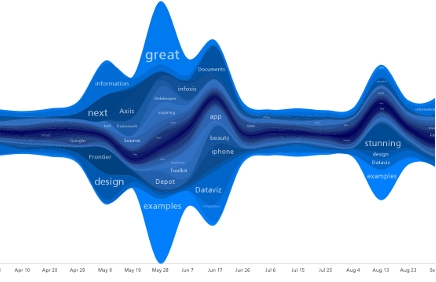Introduction
By Chris Harrison

In this issue, we take a look at computing onThe Social Web. How sure are you that all your friends and connections on Facebook, Twitter, MySpace, LinkedIn, and anywhere else that your online network exists, are legitimate people posting real information? What happens when we start to ask real questions online; can computers always find the answers, or is there a point when we have to turn to real humans again? Read about these issues and more in this edition.
By Chris Harrison
By Daniel W. Goldberg
The social Web is a set of ties that enable people to socialize online, a phenomenon that has existed since the early days of the Internet in environments like IRC, MUDs, and Usenet (e.g. 4, 12). People used these media in much the same way they do now: to communicate with existing friends and to meet new ones. The fundamental difference was the scale, scope, and diversity of participation.
By Sarita Yardi
"Know thyself". Carved in stone in front of the Temple of Apollo at Delphi, that was the first thing people saw when they visited the Oracle to find answers. The benefits of knowing oneself are many. It fosters insight, increases self-control, and promotes positive behaviors such as exercise and energy conservation.
By Ian Li, Anind Dey, Jodi Forlizzi
Research related to online social networks has addressed a number of important problems related to the storage, retrieval, and management of social network data. However, privacy concerns stemming from the use of social networks, or the dissemination of social network data, have largely been ignored. And with more than 250 million active Facebook (http://facebook.com) users, nearly half of whom log in at least once per day [5], these concerns can't remain unaddressed for long.
By Grigorios Loukides, Aris Gkoulalas-Divanis
How sure are you that your friends are who they say they are? In real life, unless you are the target of some form of espionage, you can usually be fairly certain that you know whom your friends are because you have a history of shared interests and experiences. Likewise, most people can tell, just by using common sense, if someone is trying to sell them on a product, idea, or candidate. When we interact with people face-to-face, we reevaluate continuously whether something just seems off based on body language and other social and cultural cues.
By Roya Feizy, Ian Wakeman, Dan Chalmers
Searching for information online has become an integral part of our everyday lives. However, sometimes we don't know the specific search terms to use, while other times, the specific information we're seeking hasn't been recorded online yet.
By Gary Hsieh